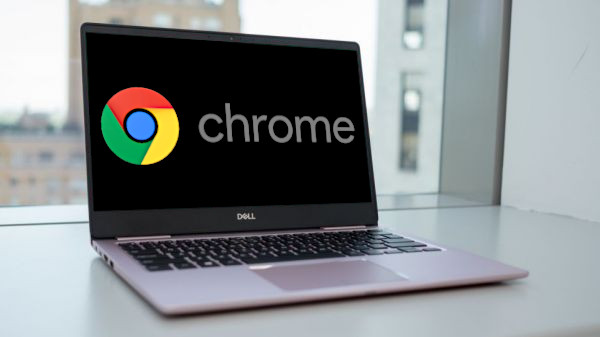Chrome dark mode arrives in beta on Windows 10 (catching up with macOS)
Join the dark side…

Google has pushed out the initial beta version of Chrome 74 in which the browser gets support for dark mode in Windows 10, a feature we’ve been expecting since the beginning of the year.
Indeed, dark mode arrived in macOS with Chrome 73 earlier this month, so Windows 10 is still playing catch-up here. And the good news is that just as on the Mac, when you turn on system-wide dark mode in Windows Settings, Google’s browser will fall in line with that command, and automatically switch to dark mode.
Similarly, if you switch to the system-wide light mode which is incoming for Windows 10 with the April 2019 Update, Chrome will revert to its normal appearance automatically.
- We've chosen all the best web browsers
- Here's all the latest on the Windows 10 April 2019 Update
- How to fix Google Chrome
As you may recall, Microsoft introduced dark mode for Windows 10 last year, and it went live with the October 2018 Update – although you may well be one of the apparently numerous users who haven’t received that upgrade yet.
Sick as a party parrot
Another interesting change with the Chrome 74 beta is a new feature to reduce motion sickness that may be experienced when browsing the web.
Motion sickness, you may well ask? A post on the Chromium blog explains: “Some users have reported getting motion sick when viewing parallax scrolling, zooming, and other motion effects. To address this, many operating systems like Android … provide an accessibility option to reduce motion whenever possible.”
In other words, this is about banishing fancy animations involving the likes of parallax scrolling which may cause some people discomfort to view, and if you have set operating system-level options to disable or remove animations for such reasons, Chrome will also respect this and automatically fall in line with that preference.
Get daily insight, inspiration and deals in your inbox
Sign up for breaking news, reviews, opinion, top tech deals, and more.
The caveat here, however, is that the developer of the website must have implemented an alternative version of the web page(s) minus said fancy animations – or simply with some options tweaked, such as videos not auto-playing – for Chrome to display.
- Some of the best laptops of 2019 run Windows 10
- Stay safer online with one of these Windows 10 VPNs
Via Windows Latest, Engadget
Darren is a freelancer writing news and features for TechRadar (and occasionally T3) across a broad range of computing topics including CPUs, GPUs, various other hardware, VPNs, antivirus and more. He has written about tech for the best part of three decades, and writes books in his spare time (his debut novel - 'I Know What You Did Last Supper' - was published by Hachette UK in 2013).